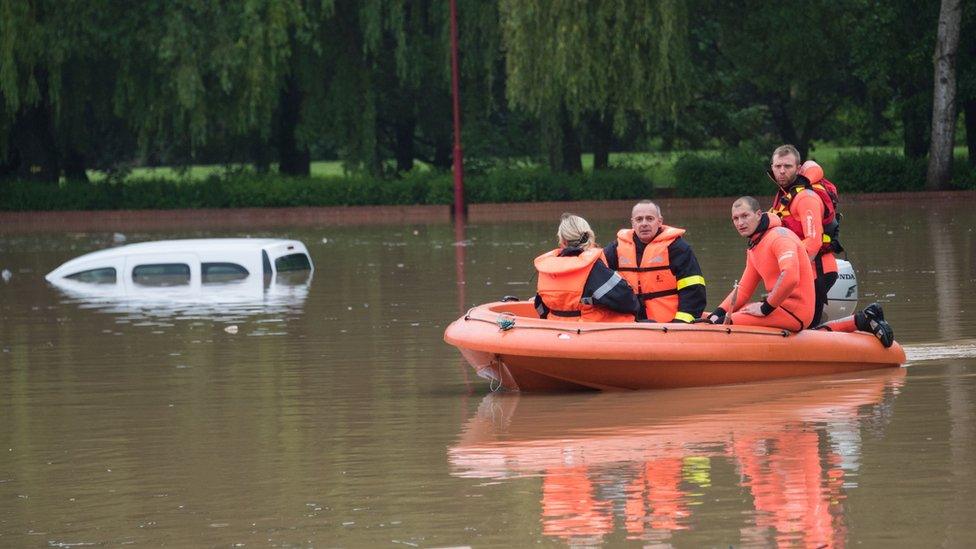Paris floods: Seine level starts dropping after 30-year high
- Published
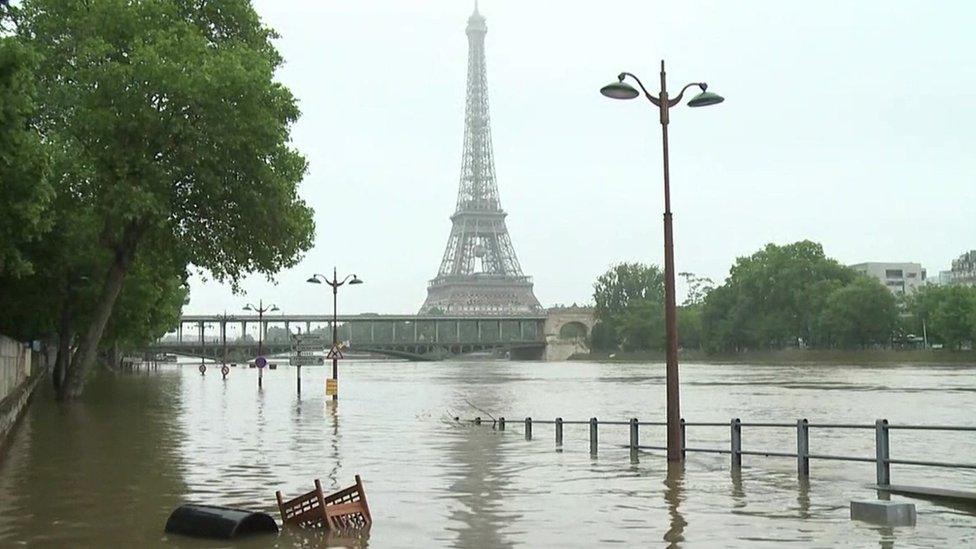
The Seine remained at 6m-high levels on Saturday morning
The levels of the River Seine in Paris have started dropping slightly after reaching a 34-year high on Friday.
The river level rose to 6.1m (20ft) above its normal height overnight.
Floods also forced parts of the metro system and major landmarks to close, while the Louvre and Orsay museums were shut while staff moved art to safety.
Despite the water level falling on Saturday morning, Paris remains under the second-highest alert, which warns of a "significant impact".
Forecasters had warned the river could reach as high as 6.5m above it normal level.
France's environment ministry said the floods now appeared to have peaked and would remain stable over the weekend before retreating further.
Prime Minister Manuel Valls said four people had died and 42 were injured across the country.
James Reynolds reports from a bridge over the swollen River Seine
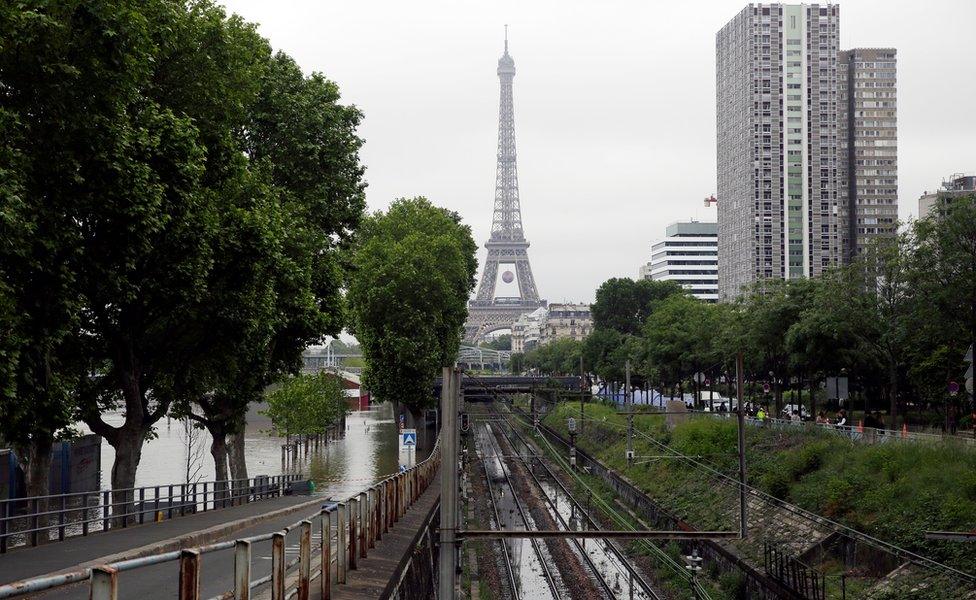
A number of rail lines flooded in the French capital
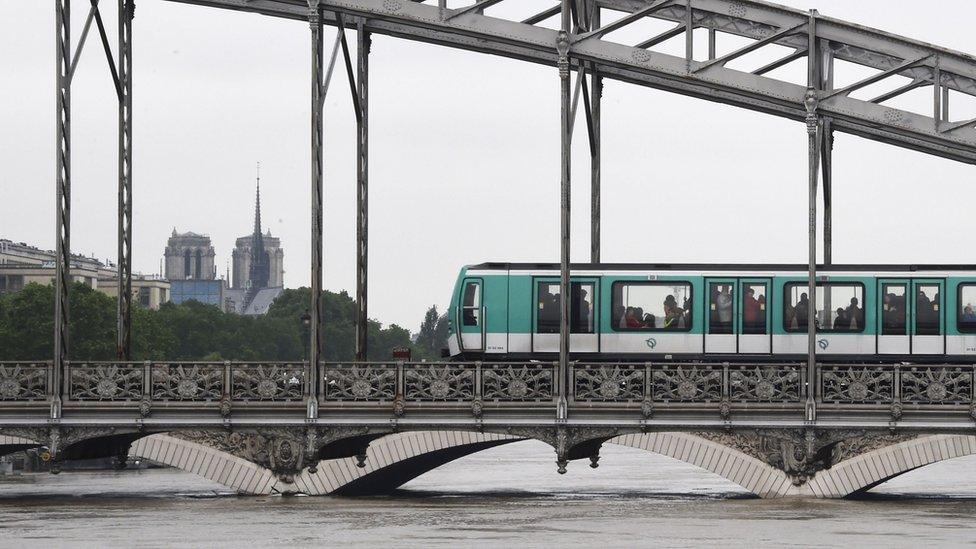
Some of the trains that did run passed very close to the high waters
At least 18 people have died across central Europe as heavy rainfall caused flooding from France to Ukraine.
A woman in her 60s drowned in France's central Loiret region, while a man in his 70s fell from a horse and drowned in a river south-east of Paris.
Eleven were killed in southern Germany as several towns were devastated. On Friday night, 51 people were injured by lightning strikes at the Rock am Ring music festival in western Germany.
Two more fatalities were reported in Romania and one in Belgium. Austria, the Netherlands and Poland have also been affected.
Tens of thousands of people have been forced from their homes.
While the waters in Paris appear to be dropping, the floods are still affecting transport in the capital, with four of the city's rail lines not running on Saturday morning.
Elsewhere, French media say the focus is shifting to communities further downstream on the Seine, including the northern city of Rouen. Some further rain is expected in central France.
Some 17,000 homes in and around Paris remain without electricity.
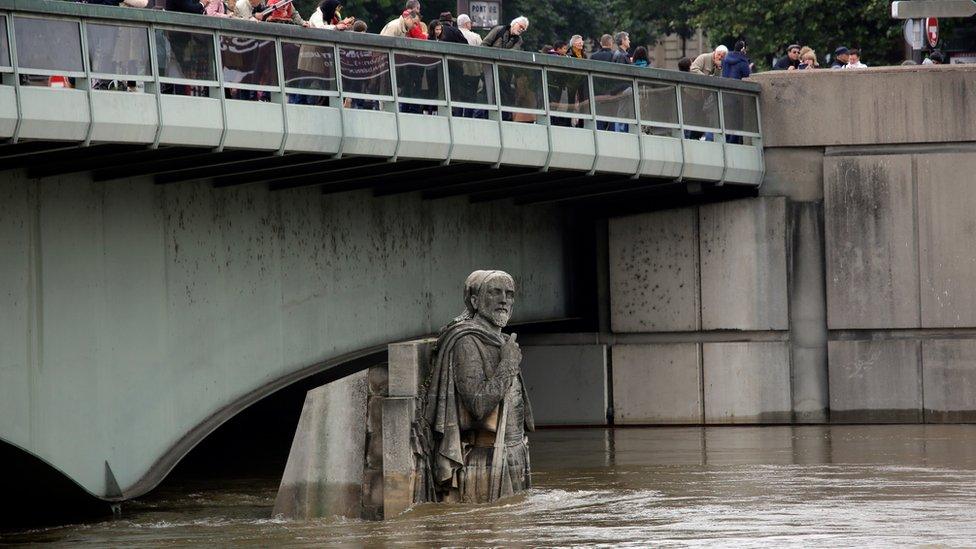
The Zouave statue on the Pont d'Alma has acted as a measuring instrument during the floods
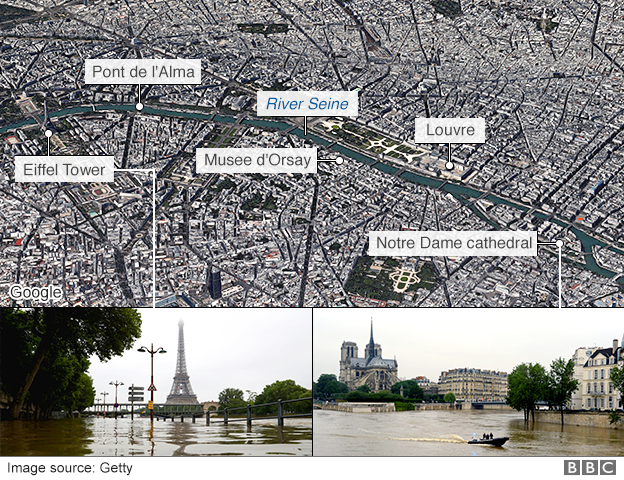
The flooding could cost French insurance companies more than €600m (£470m), according to the industry association AFA.
Bridges in Paris were closed and non-emergency boats were banned from the Seine as its rise forced the closure of museums, parks and cemeteries.
The Grand Palais exhibition hall also shut, as did two sites belonging to the National Library.
At the Louvre, curators scrambled to move 250,000 artworks to higher ground from basement storage areas at risk of inundation from what President Francoise Hollande called "exceptional flooding".
The Louvre and the Musee d'Orsay will remain closed until Tuesday.
Many locals have been checking the rise against the statue of a soldier, known as the Zouave, standing below the Alma bridge; his frame is currently submerged up to the waist.
While France's rainfall levels in May were the highest since 1873, the current crisis is eclipsed by the 1910 floods that saw Paris submerged for two months, when the Zouave was up to his neck in the Seine.
The river reached 8.62m above its normal level that year, and has since reached 7.1m in 1955 and 6.18m in 1982.

Are you in France or Germany and been affected by the floods? Or run a business or project which has closed due to flood damage? How are your family and neighbours coping?
If you have an experience you would like to share, or pictures of the flooding where you are, then share it with us in the following ways:
Email us at haveyoursay@bbc.co.uk
Please include a contact number if you are willing to speak to a BBC journalist. You can also contact us in the following ways:
Send pictures/video to
Upload your pictures / video here, external
Tweet: @BBC_HaveYourSay, external
Send an SMS or MMS to 61124 or +44 7624 800 100
Contact us on WhatsApp number +44 (0)7525 900971
Text us on 61124 or +44 7624 800 100 if you are outside the UK
- Published3 June 2016
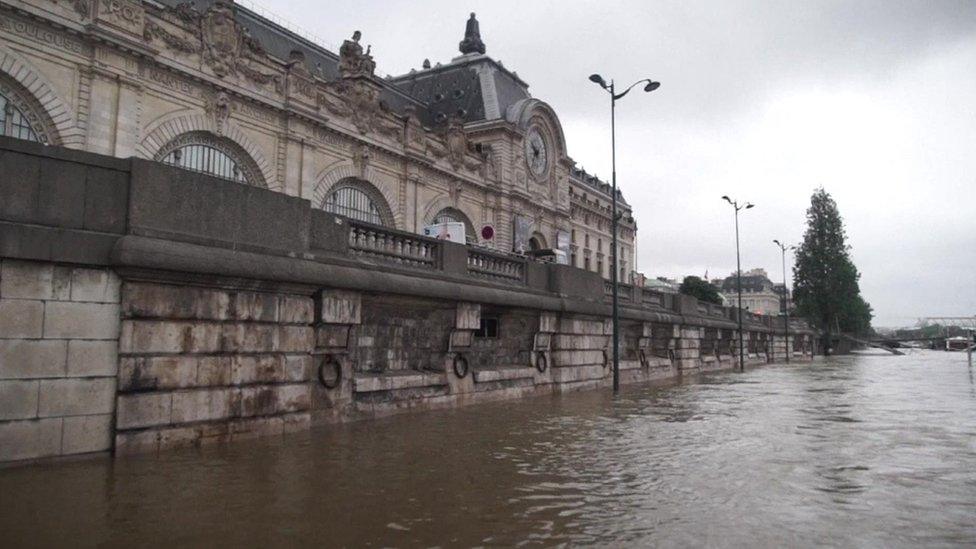
- Published5 June 2016
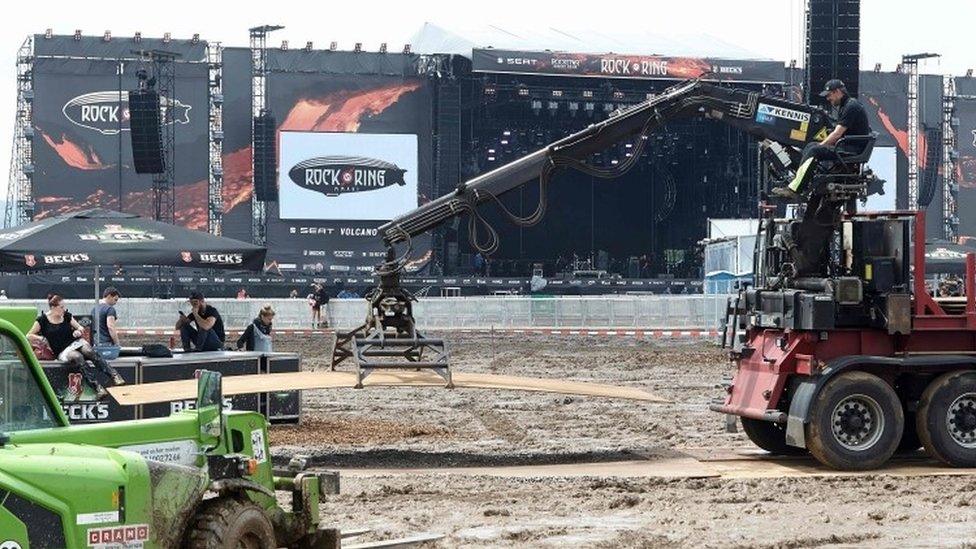
- Published3 June 2016
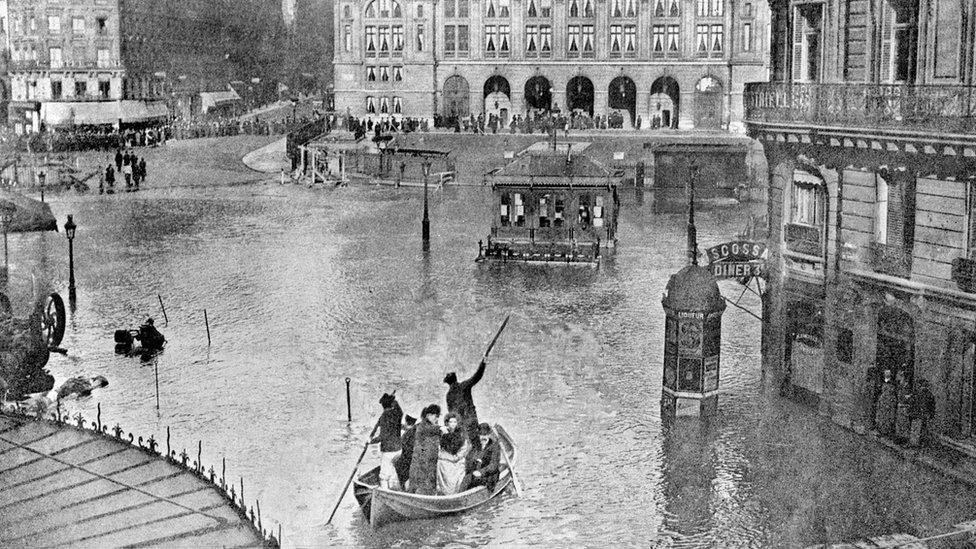
- Published30 May 2016
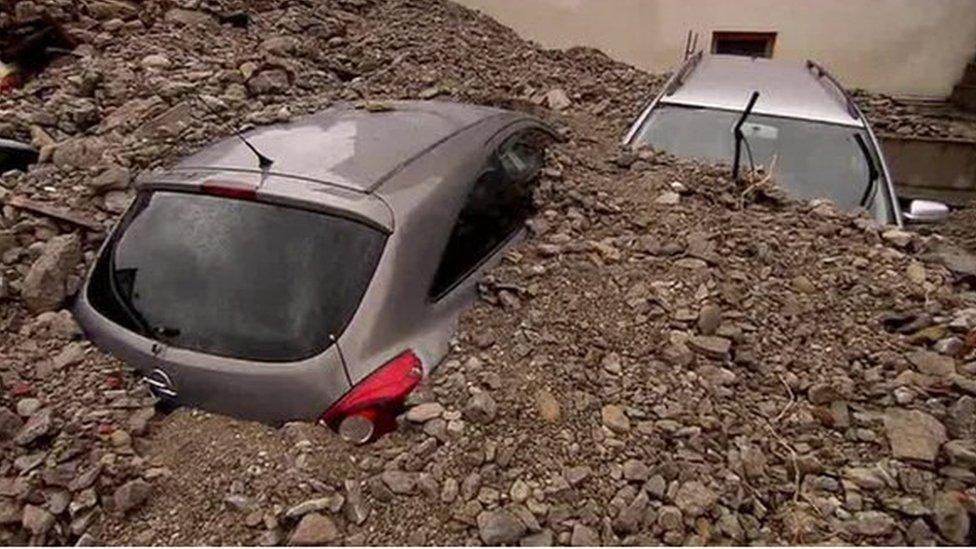
- Published31 May 2016
